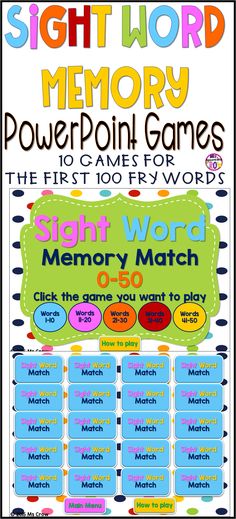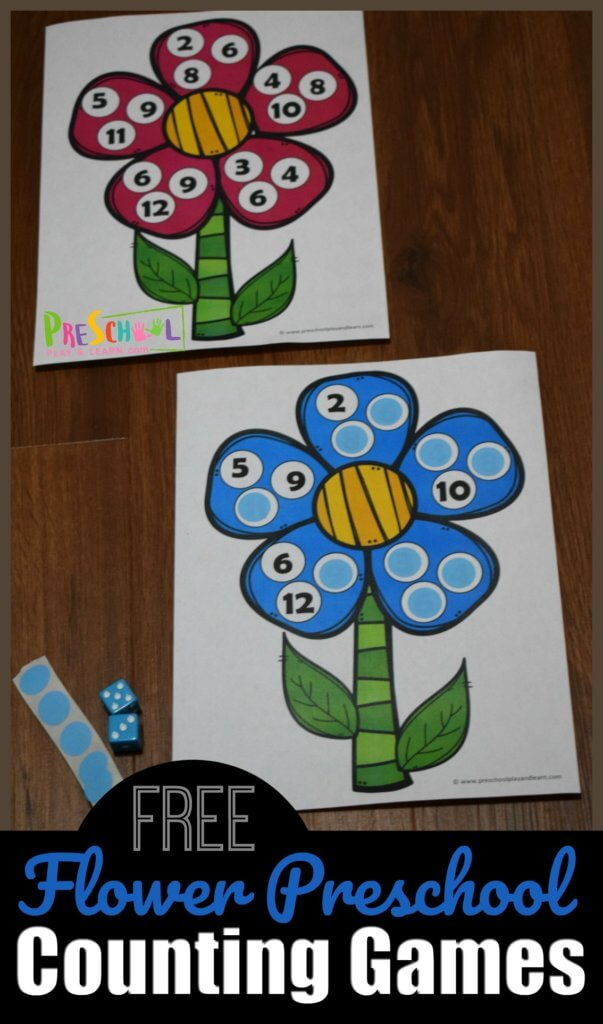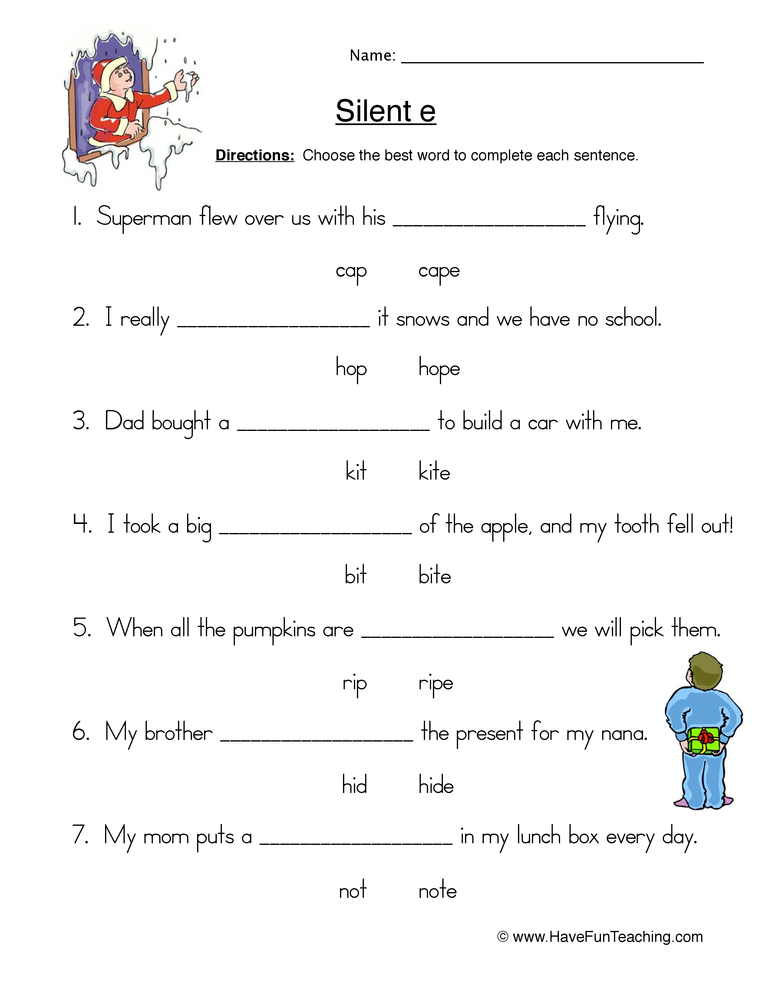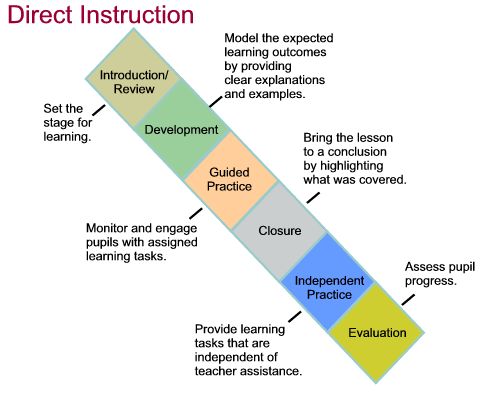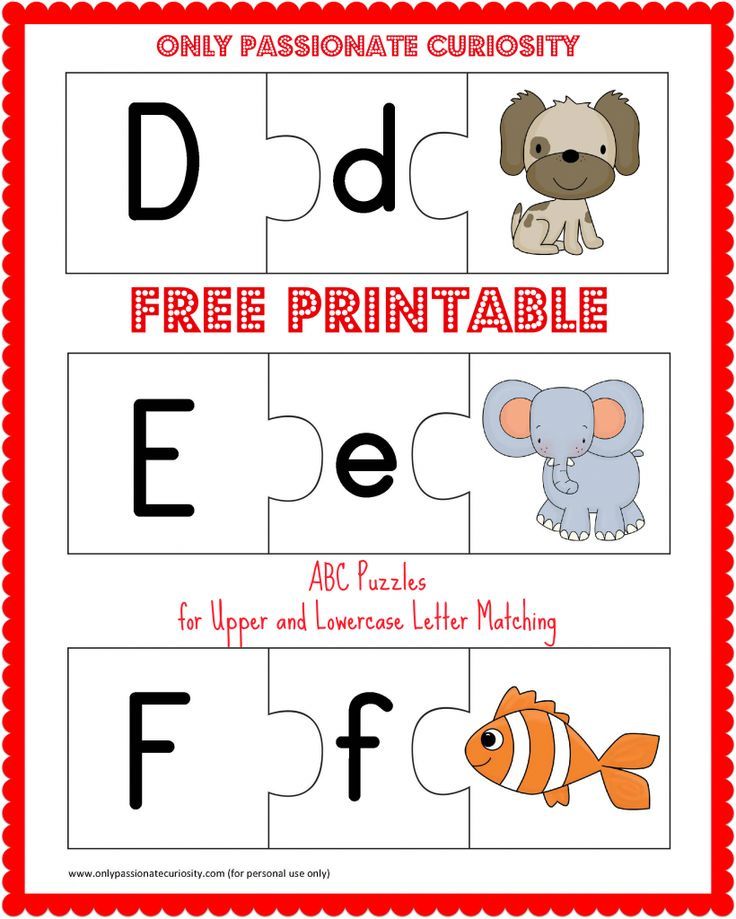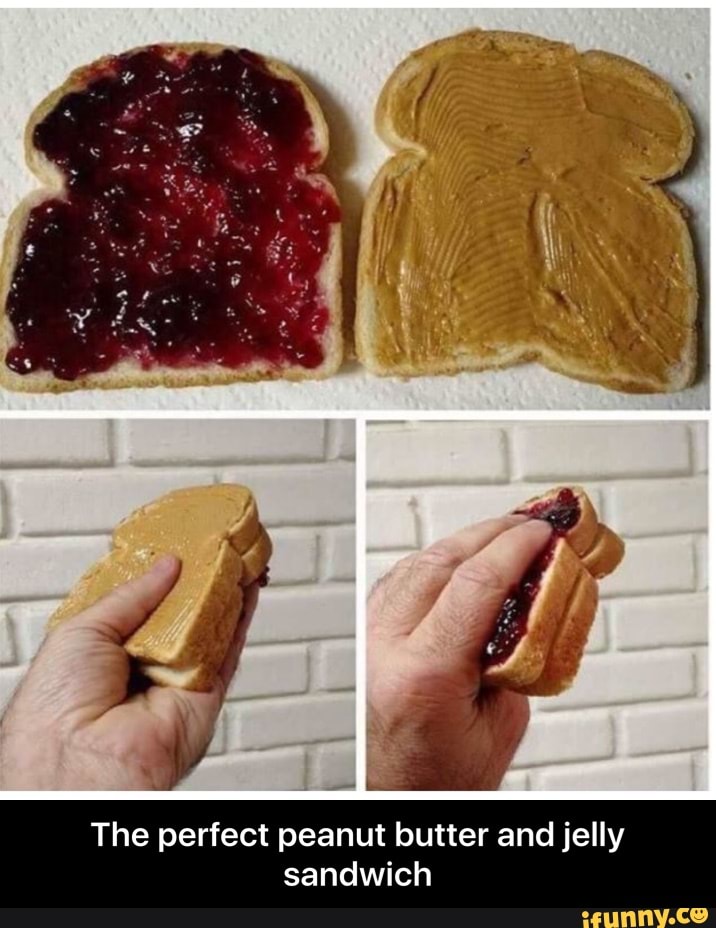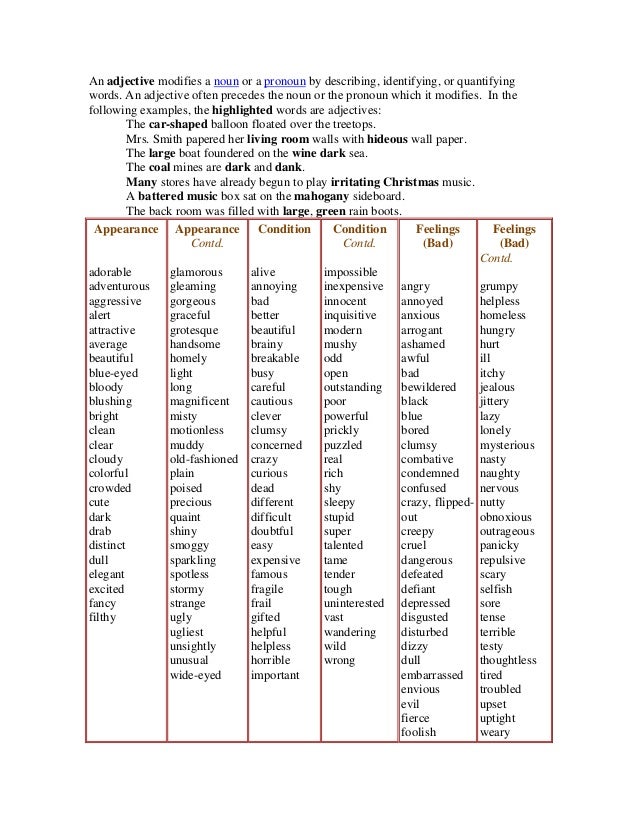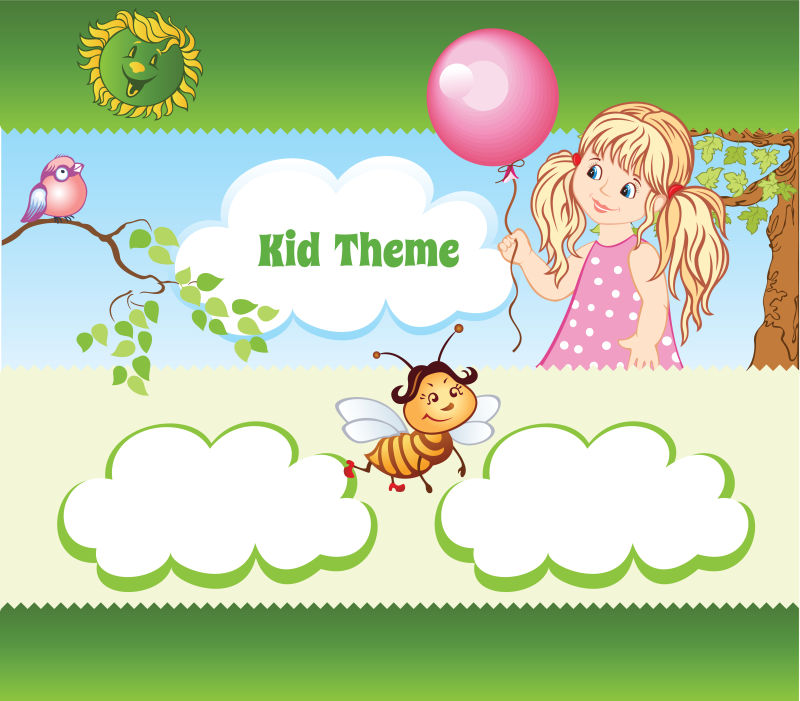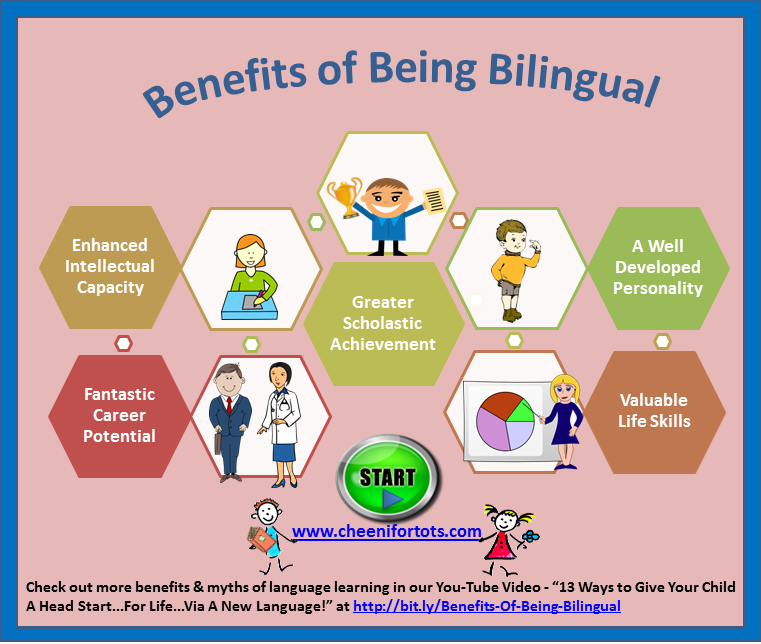Memory game with sight words
Sight Words Memory | Sight Words: Teach Your Child to Read
- Overview
- Materials
- Activity
- Confidence Builder
- Extension
- Assessment
- Printable Memory Cards
- Additional Resources
- Questions and Answers
Sight Words Memory is the standard Memory card game — sometimes called the Concentration game — with the additional element of having the student read the word on each card as they turn it over. This provides a lot of opportunities for repetition in sight reading.
Sight Words Memory
Learning the Sight Words Memory game is easier if the child has previously played the standard Memory game, but the game is simple enough that this is not necessary.
Memory works very well as a solo game. Memory can also be played in a group of up to four players.
↑ Top
Memory can be played with just a set of the Memory Cards.
- Memory Cards
- Printer
- Cardstock printer paper (approx. 110 lb / 200 gsm)
- Scissors
Create Memory Cards with our Memory Card Creator and print the cards out on cardstock paper. Then cut out the cards along the dotted lines. The set should contain two copies of each word you want to review.
Begin with a small set of cards (10 word pairs), and as your child’s competence with the activity increases, increase the number of cards you use in a game. An advanced student can handle up to 25 word pairs.
↑ Top
The game is played in much the same way as the standard Memory Card Game, with the addition of the players reading the word on each card as they play the game. The goal is to collect as many pairs of matching word cards as possible.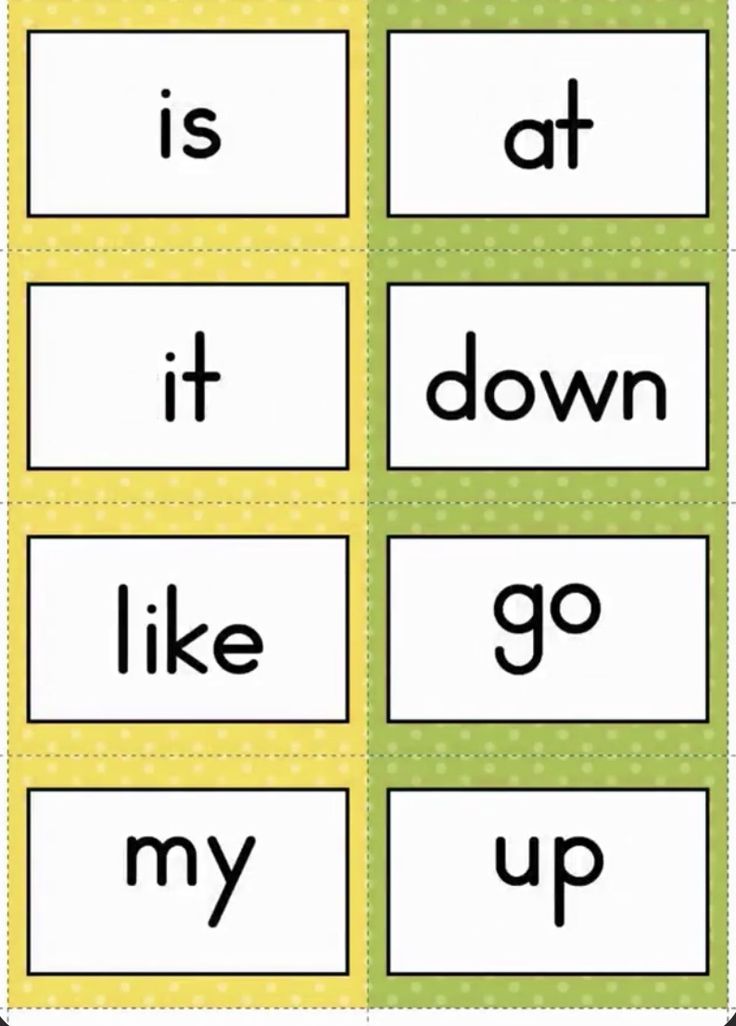
Video: How to Play Sight Words Memory
To set up the game, shuffle the cards and arrange them, face down, in a grid. For example, a deck of 30 cards (15 word pairs) is best laid out in a 5×6 grid, 5 columns of 6 cards each. The child picks one card and turns it over so the word is visible, reading the word on the card. The child then picks a second card and also turns it over, reading the word on the second card.
If the words on the two overturned cards match, the player removes the pair, placing them by her side, and gets another turn. If the words do not match, the player turns the cards back over so the words are no longer showing, and the player to her right takes the next turn.
If a child is unable to read a word or reads a word incorrectly, give the child a bit of coaching to help them correct the mistake and learn the word.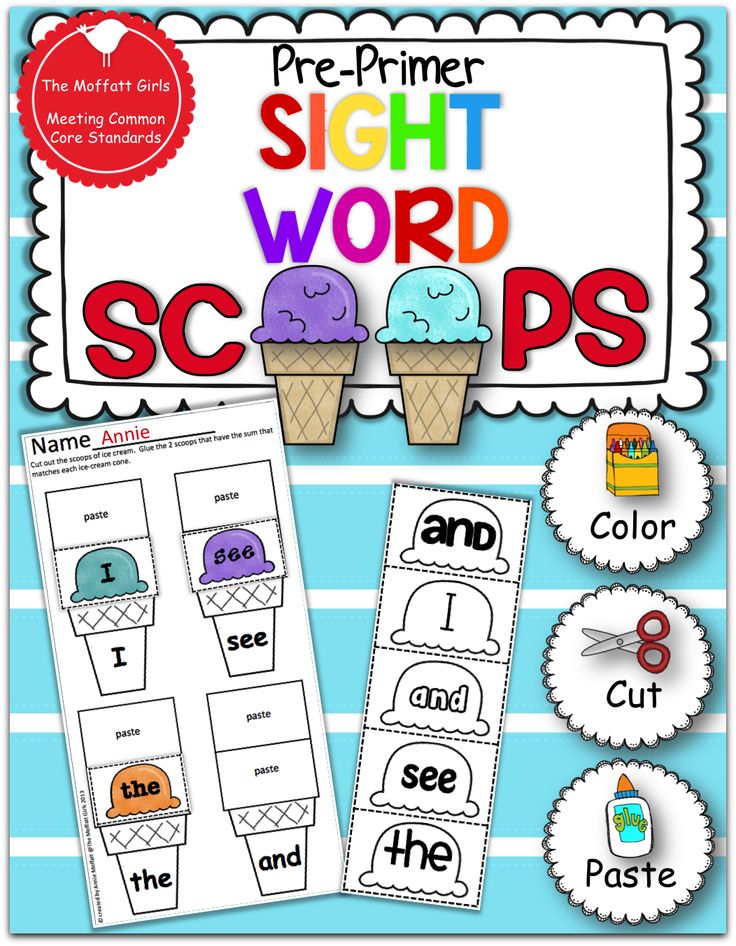
Play continues until all the words are matched and there are no cards left unclaimed.
If a child is struggling with this game, you can read through all the word cards with them prior to the start of play to help refresh their recall of the words. You can also make the game easier by using a smaller deck of cards with fewer word pairs. For an advanced child, you can increase the number of words you use, so it becomes more difficult to find matching cards.
↑ Top
To make the game a little easier, especially for a younger child, simply use fewer pairs of cards.
↑ Top
When the child finds a matching pair of word cards, have her use the word in a sentence before she can add the cards to her “keep” pile.
↑ Top
When assessing a child’s mastery of the words, be sure to separate their reading skills from their skill at playing the Memory game.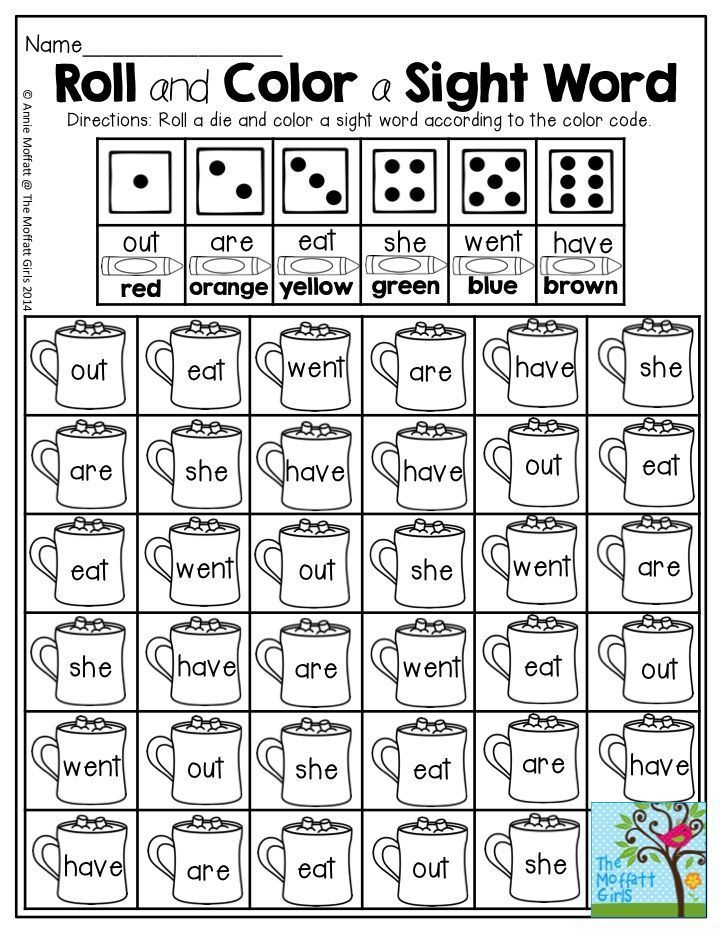 A child might have mastered the sight words on the cards and also have some difficulty remembering which card is where in the grid. Such a child might be fine with more advanced words but need a smaller number of cards. Another child who struggles to read the words will probably also have trouble remembering the location of the word cards.
A child might have mastered the sight words on the cards and also have some difficulty remembering which card is where in the grid. Such a child might be fine with more advanced words but need a smaller number of cards. Another child who struggles to read the words will probably also have trouble remembering the location of the word cards.
↑ Top
You can create your own custom Memory Game Cards, with developmentally appropriate word sets. As the child’s sight words vocabulary expands, you should start to expand your card set with new words and gradually remove the words that have been mastered and no longer need intensive repetition.
7.1 Custom Sight Words Memory Cards
The Memory Card Creator creates custom Memory Card sets. The generator lets you use combine existing words lists such as Dolch Sight Words and Fry Sight Words, and add your own custom words.
7.2 Blank Memory Cards
- Blank Memory Cards (Write in your own words)
7.
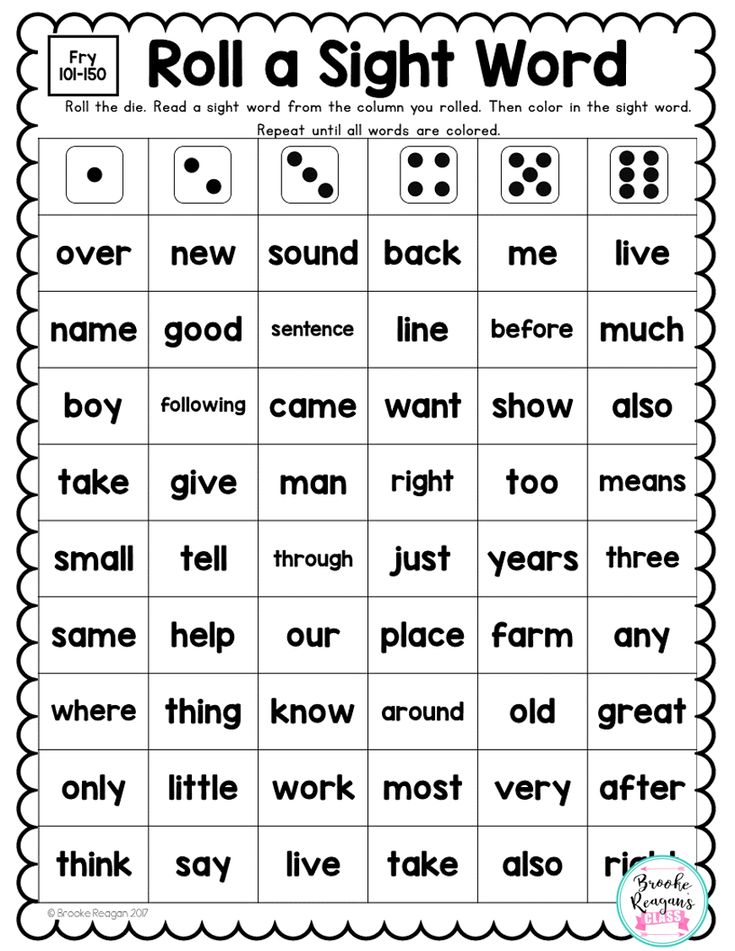 3 Dolch Sight Words Memory Cards
3 Dolch Sight Words Memory Cards- Pre-K Dolch Words (40 words)
- Kindergarten Dolch Words (52 words)
- 1st Grade Dolch Words (41 words)
- 2nd Grade Dolch Words (46 words)
- 3rd Grade Dolch Words (41 words)
- Noun Dolch Words (95 words)
7.4 Fry Sight Words Memory Cards
- 1st 100 Fry Words (100 words)
- 2nd 100 Fry Words (100 words)
- 3rd 100 Fry Words (100 words)
- 4th 100 Fry Words (100 words)
- 5th 100 Fry Words (100 words)
- 6th 100 Fry Words (100 words)
- 7th 100 Fry Words (100 words)
- 8th 100 Fry Words (100 words)
- 9th 100 Fry Words (100 words)
- 10th 100 Fry Words (100 words)
7.5 Top 150 Written Words Memory Cards
- 1st 50 Words (50 words)
- 2nd 50 Words (50 words)
- 3rd 50 Words (50 words)
To download a template, right-click and select Save As.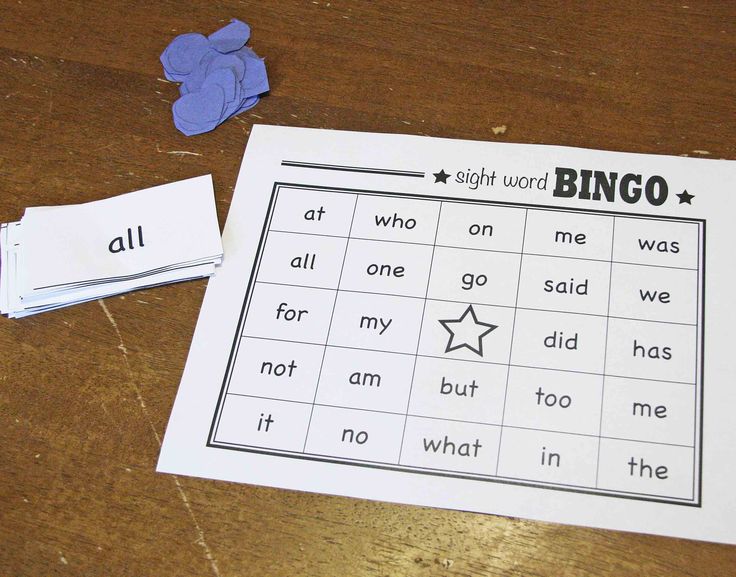
These Memory Game Cards are governed by the the Creative Commons Attribution 3.0 Unported License. This license lets you use the cards in any manner you want, as long as you leave the attribution logo on the cards. We made these cards so you could use them, and we are only too happy if you use them in your school, library, daycare facility, or for-profit tutoring business. You do not need to contact us for permission to use the materials.
↑ Top
- Primary Games
- Learning Games for Kids
- DolchWord.net
↑ Top
Leave a Reply
Free Sight Words Memory Game to Boost Reading Fun
This free sight words memory game makes learning how to read fun. Your kids will love this hands-on, interactive approach to practicing sight words.
I’m using these printable cards with my boys in a variety of ways. Find out more about the creative activities that we are doing to have sight words fun and how you can get started with your free printable pack today!
Find out more about the creative activities that we are doing to have sight words fun and how you can get started with your free printable pack today!
Our Relaxed Approach to Learning How to Read
As a homeschool parent, I’ve had my share of guilt.
At times, I feel like I’m totally rocking this whole homeschool thing. And then it’s like I’ve hit a brick wall and had a ton of concrete poured on me.
Fortunately, I found the key to digging myself out of that big mess. And that key is to just relax and enjoy the ride.
Teaching my four older boys how to read was no exception. We went through some big ups and some big downs. And lot of those erratic experiences were due to me!
I’ve learned a few tips and tricks that I’m now using with my youngest boy. And the #1 thing that I’ve discovered is that you must keep it fun and follow your child’s lead 🙂
Xman is ready to learn & practice sight words 🙂
My two oldest boys expressed interest in learning how to read during preschool.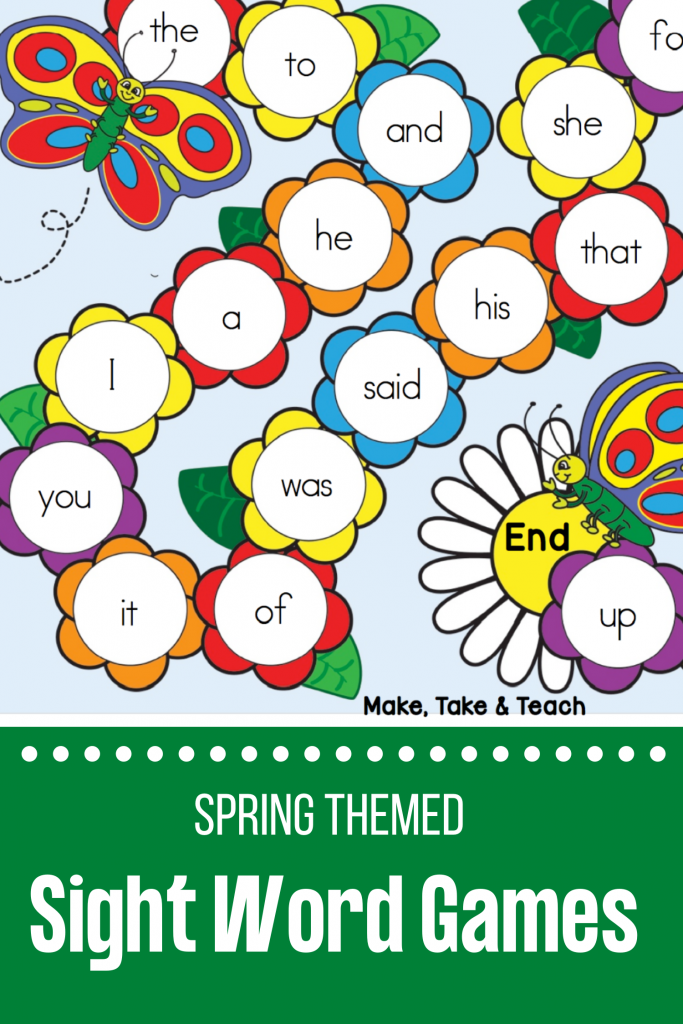 They loved worksheets and workbooks for practicing phonics and sight words. These boys wanted structure and thrived using Teach Your Child to Read in 100 Easy Lessons.
They loved worksheets and workbooks for practicing phonics and sight words. These boys wanted structure and thrived using Teach Your Child to Read in 100 Easy Lessons.
Boys #3 and #4 were different stories. Smiley (#3) adored our read-aloud time and quickly learned his letter sounds. But, any attempt at teaching him how to read was a flop.
After lots of frustration and tears, I followed the wise words of Julie Bogart and her Brave Writer lifestyle. I stepped back from all the pressure and structured approaches. It was so hard because I worried that I’d fail my child. But, it was the best thing I could have done for that boy and our relationship 🙂
We kept up our read-alouds and listening to audiobooks. Smiley watched big brothers read and soaked it all in. We used hands-on games like Bananagrams and Pop for Letters to continue practicing letter sounds.
BananagramsLearning Resources Pop for Letters Game
And when he was ready, Smiley took a book out of one of our many overflowing book baskets and started reading.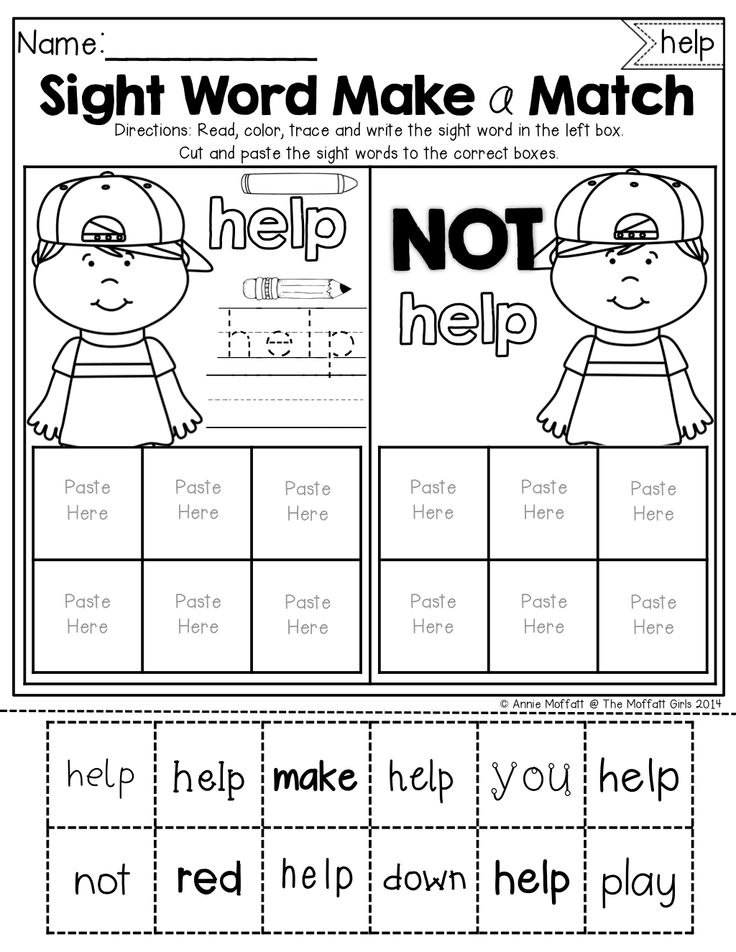 I kid you not! You could have picked up jaw up from the floor.
I kid you not! You could have picked up jaw up from the floor.
His first book was Hop on Pop by Dr. Seuss. We had read that book A LOT so I tested to see if he was really reading it (or had simply memorized). He read a page from the middle of the book backward!
There was no stopping him with his reading adventures after that 😉
Bear (#4) enjoyed learning how to read with Bob Books. Since that approach worked with him, I got every Bob Books set that I could. He breezed through that series and began his reading adventures fun.
My First BOB Books: Pre-Reading SkillsBob Books, Set 1: Beginning ReadersBob Books Set 2-Advancing BeginnersComplete Set of Bob Books, Sets 1-5 (42 books)Bob Books Sight Words: KindergartenBob Books: Sight Words, 1st GradeBob Books: First StoriesBob Books: Rhyming WordsBob Books Set 4 – Complex WordsBob Books Set 5- Long Vowels
This past summer, my youngest (Xman) begged me to learn how to read. He’s an interesting mix of all his older brothers. We’re using a combination of Teach Your Child to Read in 100 Easy Lessons and Bob Books. And it’s working for him 🙂
We’re using a combination of Teach Your Child to Read in 100 Easy Lessons and Bob Books. And it’s working for him 🙂
In addition to those resources, Xman and I are having a blast with hands-on activities, like our new free sight words memory game.
Learning Sight Words Can Be Fun!
Sight words can be real buggers for some kids.
My oldest seemed to quickly memorize sight words. We used a set of sight words flashcards on a loose-leaf ring that my mom (a retired Kindergarten teacher) gifted us. After a few rounds of practice, Captain mastered sight words.
His brothers needed more time and practice 😉 After a bit of panic, I found out that it’s completely normal for kids to learn how to read in their own time.
To make learning sight words fun, I added games and hands-on activities to our reading practice. With these types of activities, my boys were able to relax and have learning fun. And, when they were ready, reading started to happen.
And, when they were ready, reading started to happen.
Xman reading sight words as he tries to find a match.
Don’t fear fun! Learning can be enjoyable, even something to be eagerly anticipated.
This free sight words memory game is one of the ways I’m making this process fun for my lil’ man. It has become one of his favorite ways to practice sight words (and that makes my homeschool mama heart so happy!).
Creative Ways to Boost the Learning Fun with This Sight Words Memory Game
Not sure if a sight words memory game is going to engage your young learner? Here are a few ways that Xman and I are making the most of this special time to learn and practice sight words with this game:
- Add fun challenges when a sight word match is made. Do five toe touches. Or stick your tongue out and pat your head. Something to make the game interesting and silly.
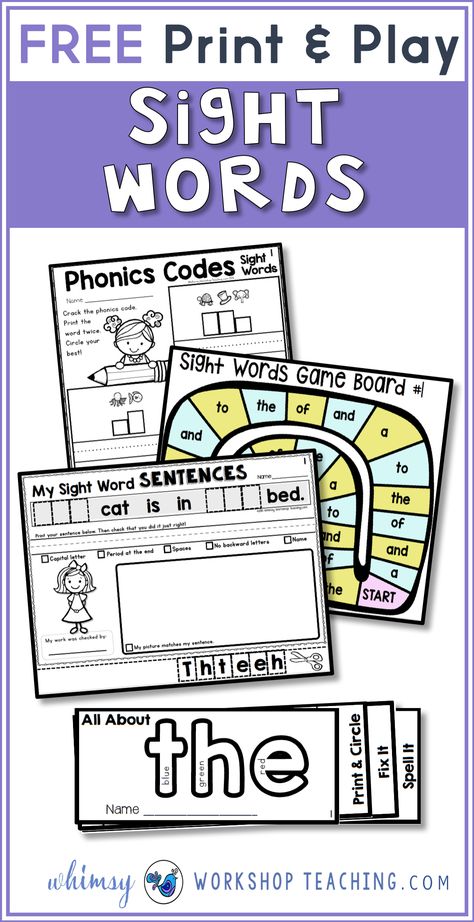
- Play music in the background. Recently, I’ve discovered that my boys get so much more out of our learning fun when I softly play music during a game or activity. If you’re adding movement prompts for fun challenges, energetic music would work well. If focus and attention are required, classical or relaxing music may be best.
- Tally it up! For every match made, make a tally mark. Keep score and see who gets the most sight words matches. (Great for a bit of math practice!)
- Practice growth mindset fun. Learning something new is a challenge. And can become frustrating, fast. Gently remind your child of how we grow and learn when we make a mistake-and how we can work towards mastery with practice and persistence.
- Plan a special event or activity. When your child has mastered the set of sight words memory game, play a board game, go to the library, or have a yummy treat.
- Have flashcard fun! There’s nothing wrong with flashcards, per se.
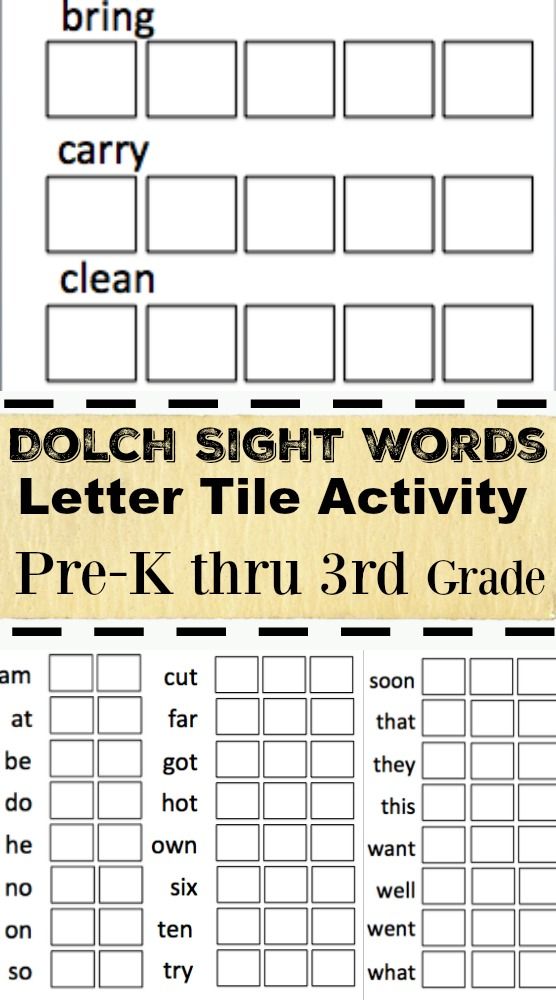 Some kids really like them. Most kids benefit from using flashcards, even if not a favorite activity. Instead of drill-and-kill, spice things up a bit. Add a hands-on component, like forming the letters with playdough or using Scrabble tiles to spell the sight words after reading a flashcard.
Some kids really like them. Most kids benefit from using flashcards, even if not a favorite activity. Instead of drill-and-kill, spice things up a bit. Add a hands-on component, like forming the letters with playdough or using Scrabble tiles to spell the sight words after reading a flashcard.
Easy Steps for Playing Sight Word Memory Games
Each of these free sight word memory games contain 25 words. You know your child best 🙂
If your child is new to learning and practicing sight words, you might want to start small with 5 or 10 pairs and build from there.
If your child is ready for a bigger challenge, use all 25 pairs (or mix up sets!).
- Print out your sight word memory games on white cardstock.
- Use scissors or paper trimmer board to cut out each card.
- Shuffle cards.
- Place cards with sight words down in rows (or circles or however your child wants to play!).
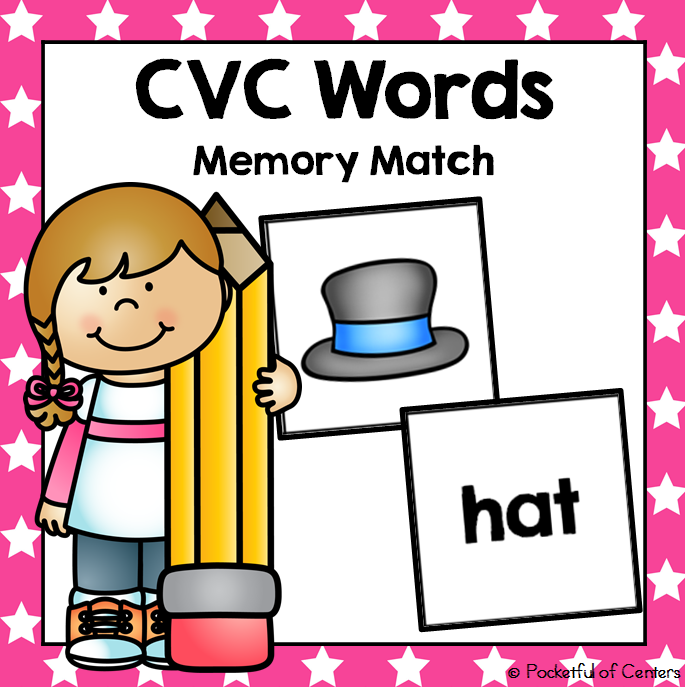
- Determine if you’ll make it a two-person (or more) game or if your child will independently play. If a multi-player game, determine who will go first.
- The player turns over two cards at a time to try to make a sight words match. The player reads both cards.
Encourage your child to give best effort in reading the sight word. If your child needs help, give clues or read sight word aloud and have your child repeat. - If a match, place the cards in win pile. If not a match, the cards remain in play.
- If a match is made, player continues turn until no match is made. If multi-player game, next player takes turn.
- Play continues until all sight words are matched.
- Optional: Tally how many sight word matches each player has. The highest total wins!
- Celebrate reading and practicing sight words with this fun game 🙂
- Store sight words memory game cards in plastic sandwich bags or other simple storage container.
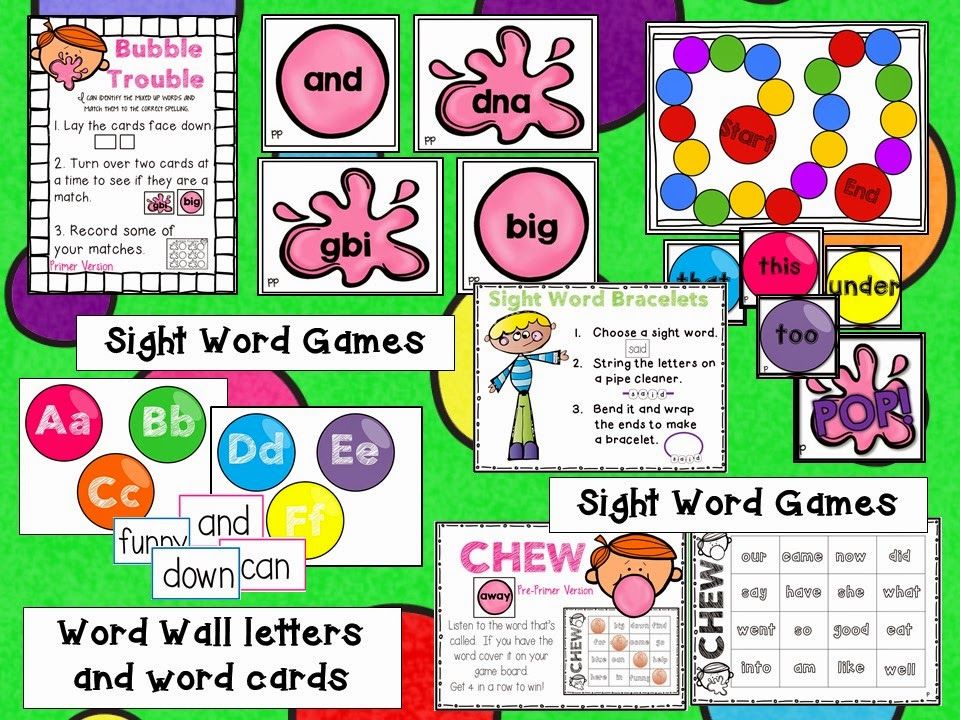 Label for future use.
Label for future use.
Get Your Free Sight Words Memory Game for Reading Fun
Want to have reading fun with these sight words memory games? Get your free printable pack today!
I’m currently building this free sight words memory game pack. In this download, you’ll receive 8 separate downloads. Each download contains memory game cards for 25 different words.
These printables are based on Fry Sight Words and are currently for First Hundred and Second Hundred. (I’ll continue to add as I work on these sight words with my lil’ man. The Fry Sight Words lists go up to Tenth Hundred.)
I color-coded the sight words memory games based on the Fry Sight Words divisions as such:
- Red: 1-100
- Orange: 2-100
- Yellow: 3-100
- Green: 4-100
- Blue: 1-200
- Purple: 2-200
- Gray: 3-200
- Black: 4-200
I’ve found that it’s nice to be able to differentiate between the sets in case they get mixed up 😉
**I recommend printing this sight words memory game on white cardstock.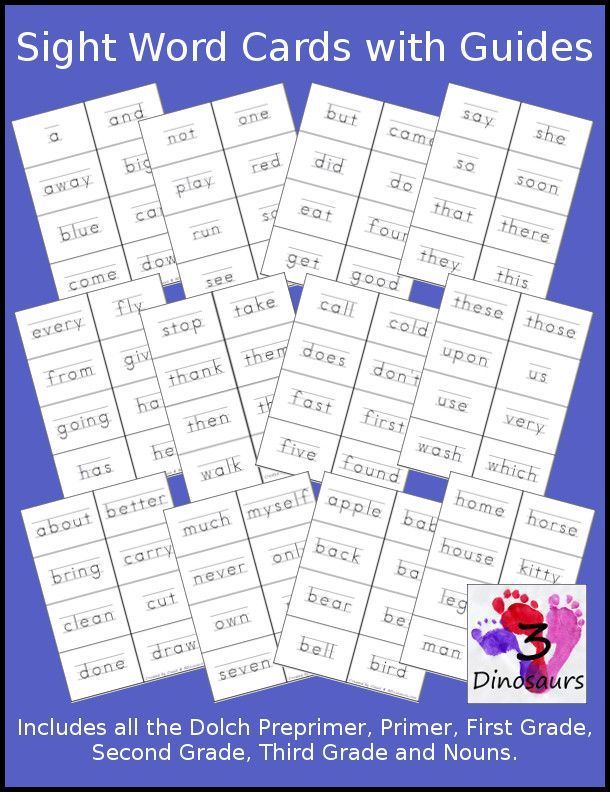 The thickness of cardstock prevents transparency (see-through) and can still be used in printers.
The thickness of cardstock prevents transparency (see-through) and can still be used in printers.
Please feel free to print as many of these sight words memory game cards as you need for your family or class. If you know a friend or co-worker who you think would enjoy sight words fun with their kids, please share the link to this post. Your sharing is very appreciated!
When you subscribe and join the Rock Your Homeschool community, you’ll receive this printable pack in a PDF download in an email, along with a password to open the library to all RYHS freebies. In addition to your freebies, you will get emails with ideas and encouragement to make learning fun (plus instant downloads to all new freebies!).
**I’ll send emails with updates for when I update this printable pack with other sight words memory game cards.
(Psst! Current RYHS members just need to access the Subscriber Freebies page and enter the password in your welcome email. Or get the instant download in the email the week of this post.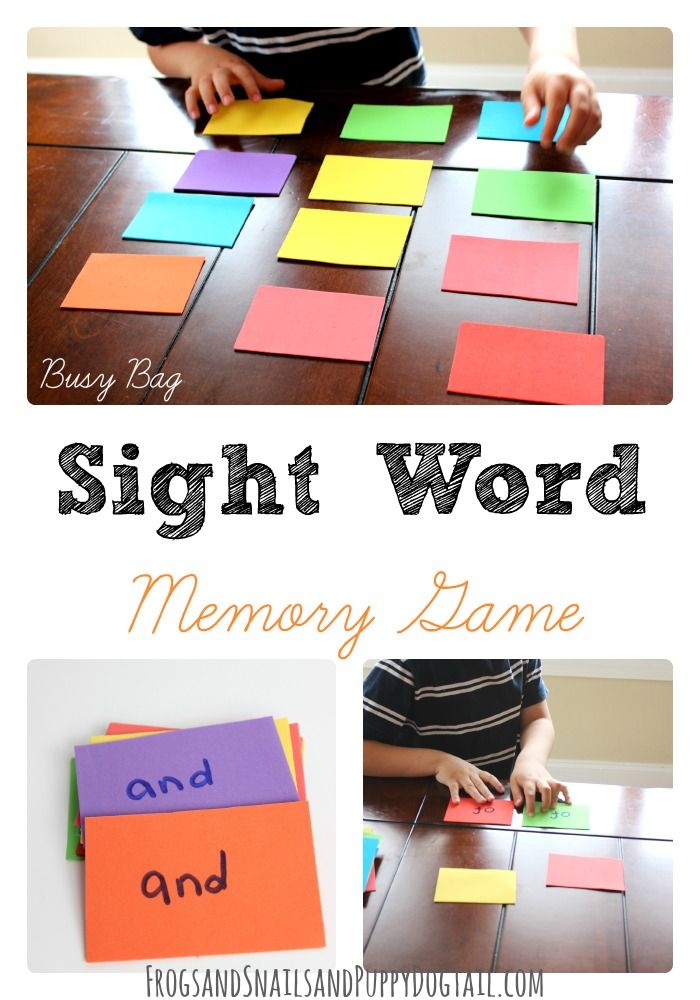 )
)
Click on the image below to subscribe and get your free printable Sight Words Memory Game sets!
Have you tried these sight word memory games with your kids?
Please share your experiences or questions in the comments area below 🙂
Sharing is caring!
149 shares
- Share
- Tweet
5 memory games
Memory training is very useful for those who go to kindergarten or school. And adults too!
Every day we come across an incredible amount of information and impressions. To be a successful person, you need to be able to cope with this flow. You need to learn how to separate information into useful at the moment and use it in time, keep the one that will be useful in the future, and ignore the useless.
That is why it is so important to develop and train your memory. There are great games for small and large companies to help with this.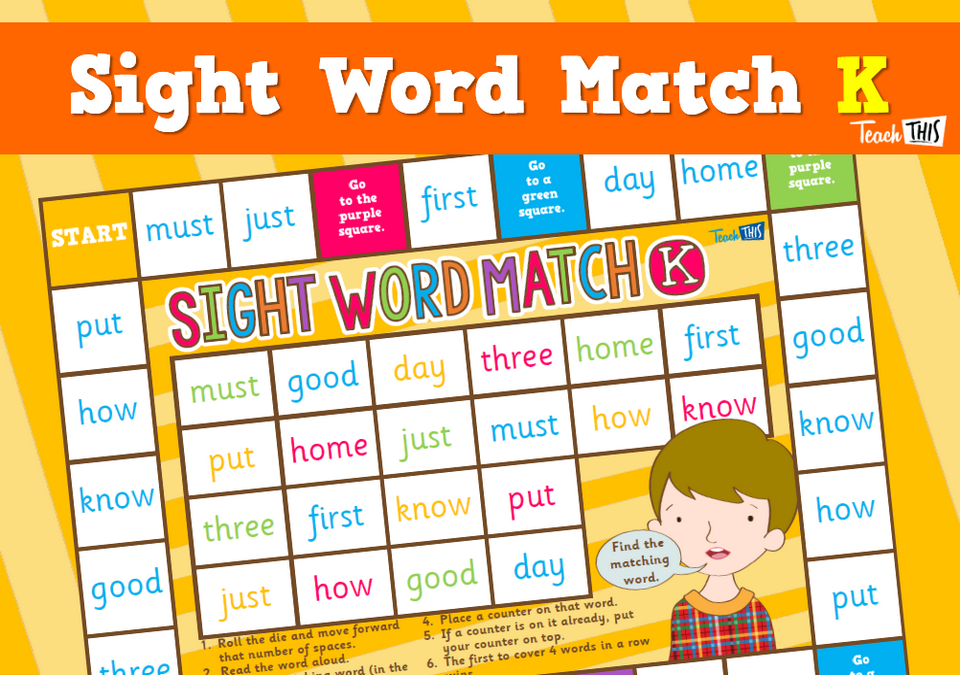 Since these are word games, you can play with your child both in line, on a trip, while walking, and at home. Let's start training!
Since these are word games, you can play with your child both in line, on a trip, while walking, and at home. Let's start training!
Kira Trubetskaya, teacher of the "Memory" course, Mayak Development School
"Snowball"
The game seems simple at first glance, but it should not be neglected. It is best if there are more than three players. Choose a theme (animals, fairy-tale characters, colors), the first player names one item from the row, each subsequent one repeats the previous options and names his own. The winner is the one who lasts the longest and is able to repeat the entire resulting row without error.
“Com with continuation”
Reminds the previous game, but the participants not only repeat individual words, but make up a whole sentence. A couple of words are taken as a starting point. For example: "Once in the winter ...". Repeating the previous phrase, each participant adds another word. "Once in the winter ... the first ... snow began .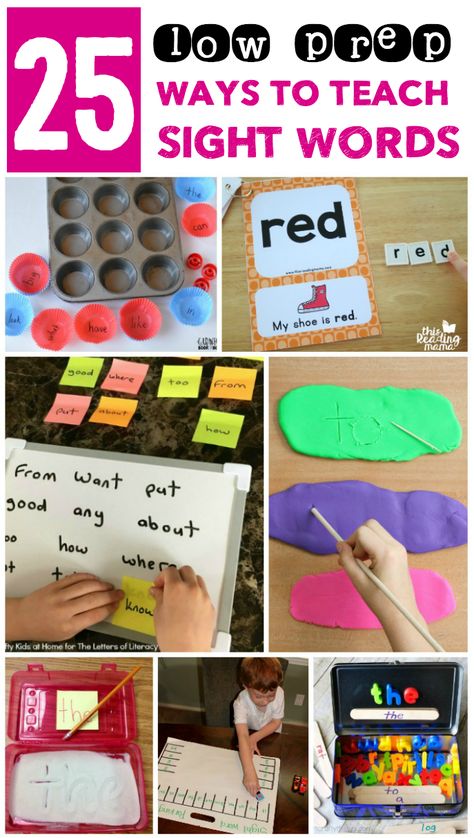 .., the sun ... was already setting ...". A sentence can turn out to be very long, the main thing is not to make a mistake in word order.
.., the sun ... was already setting ...". A sentence can turn out to be very long, the main thing is not to make a mistake in word order.
"Missing Link"
Helps develop figurative memory. The task is to find a word that will show the connection between two seemingly unrelated things. For example, what do a pipe and a sun have in common? How to connect morning and somersault? Movie and dream? Elevator and heart? Nut and flood? A flower and a skyscraper? There is no exact answer, each player may have their own associations. And the more unusual and interesting they are, the better: after all, the memory remembers such images very vividly. Preparation for such a game is also very useful: by composing and inventing such pairs, you are already beginning to train your figurative memory.
"What and who?"
Another good association game. The word-sign is taken as the basis. For example, hot. The series of words that appear in the head with the word hot is selected.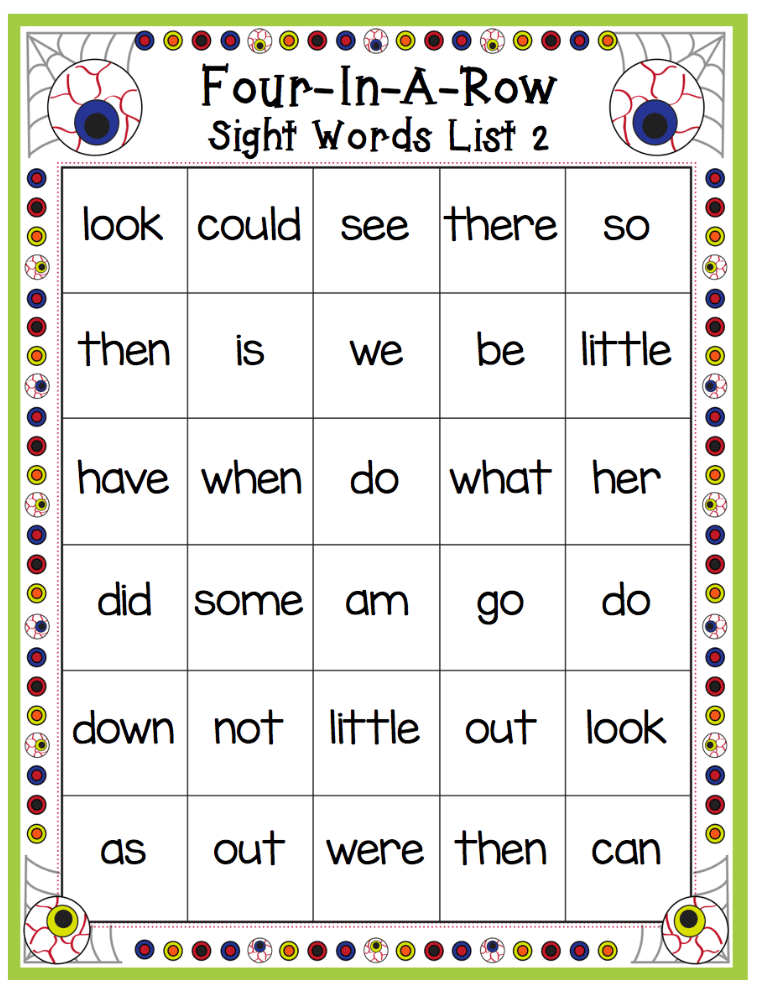 What did you think? Those words that make up a figurative pair with the word hot are more valued. Hot soup is good, but a hot heart, a hot person, a hot argument is much more interesting. What can be hard? Golden? Strong? Curly? If you play in a large company, you can think over a list of such signs in advance so that you do not waste time on this during the game.
What did you think? Those words that make up a figurative pair with the word hot are more valued. Hot soup is good, but a hot heart, a hot person, a hot argument is much more interesting. What can be hard? Golden? Strong? Curly? If you play in a large company, you can think over a list of such signs in advance so that you do not waste time on this during the game.
“What came to mind”
Also useful for the development of associative memory. Any word comes up. For example, a map. And all the associations, images that come to mind are named. The more diverse the associative array, the better. Don't hold back!
See also:
7 tips to help you remember the most difficult poems easily
10 games to help you improve your child's handwriting
3 math games to make your child a genius
Photo by Aaron Amat/Shutterstock.com
schooldevelopmentgames
Smart games - CogniFit | Play Free Mind Games Online Now!
Train with special cognitive games Smart games can help test and train your brain and cognitive abilities.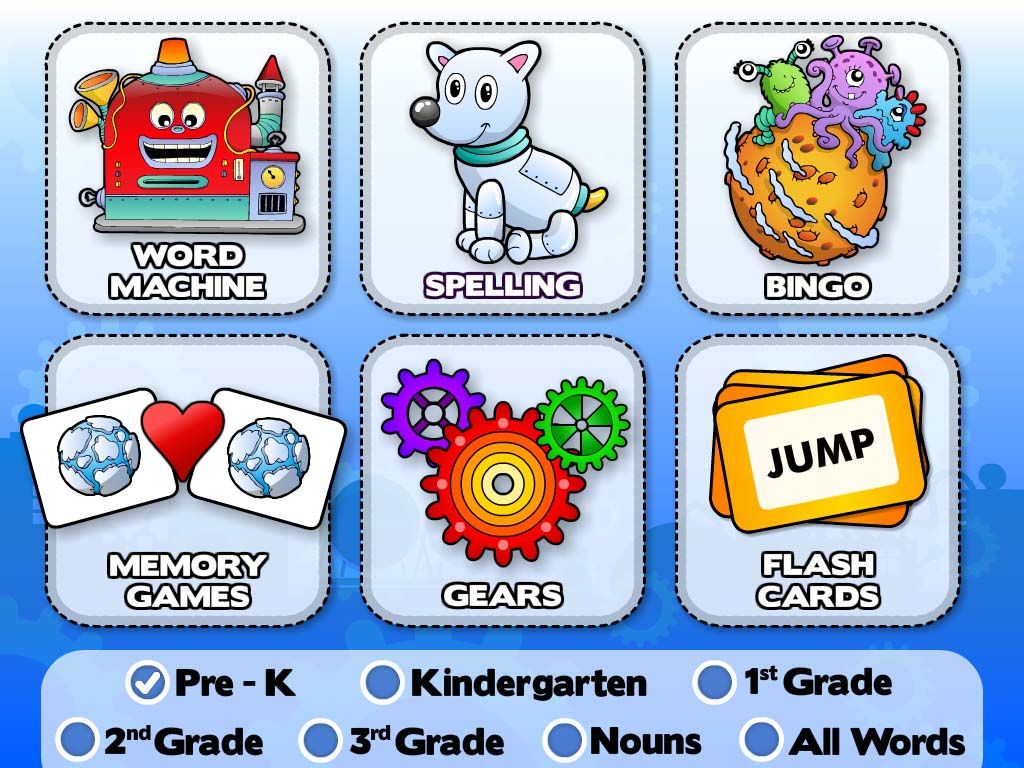 Using the latest research in the field of neuroplasticity, CogniFit has developed specific brain training to develop various cognitive skills that we use on a daily basis. With the help of the CogniFit online platform, you will have access to a large number of games and will be able to choose different exercises according to your needs. Improve your cognitive abilities daily Play every day and challenge your brain. Just 10 minutes a day will help you keep your brain in shape. Memory, attention, coordination, cognitive flexibility... train what is needed. In addition, the program will automatically adapt the workout to your level. We at CogniFit want you to have fun while strengthening your brain.
Using the latest research in the field of neuroplasticity, CogniFit has developed specific brain training to develop various cognitive skills that we use on a daily basis. With the help of the CogniFit online platform, you will have access to a large number of games and will be able to choose different exercises according to your needs. Improve your cognitive abilities daily Play every day and challenge your brain. Just 10 minutes a day will help you keep your brain in shape. Memory, attention, coordination, cognitive flexibility... train what is needed. In addition, the program will automatically adapt the workout to your level. We at CogniFit want you to have fun while strengthening your brain.
Do mind games make you smarter?
This question is not easy to answer. While brain games may help improve certain cognitive abilities, such as concentration and focus, it's not clear whether they really make people smarter or just improve memory. Some studies suggest it is possible, while others suggest the benefit is limited.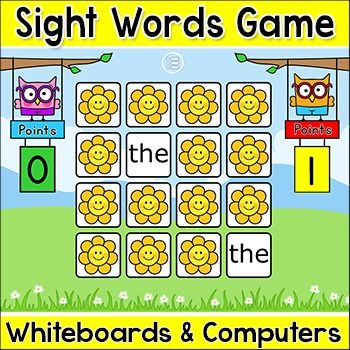 Our app has been used on millions of devices and the reviews show that it has been useful to a group of people who regularly test their abilities. Different games are likely to have different effects on different people, so it's important to try out a few different kinds of games to see which ones work best for you.
Our app has been used on millions of devices and the reviews show that it has been useful to a group of people who regularly test their abilities. Different games are likely to have different effects on different people, so it's important to try out a few different kinds of games to see which ones work best for you.
We offer a large collection of challenging quizzes, word games and other brain games to help anyone who wants to stay in good cognitive shape. With a personalized approach to training for brain health, we have hundreds of videos that will explain the rules, guide you through the process, and help you better understand the results. Explore a variety of materials for children, adults, and seniors and see what might be right for you.
Brain games like Digital Therapy
Russell A. Barclay, Ph.D., medical consultant for ABC News and author of "Taking Control of ADHD", says: "This is a potentially important breakthrough in the treatment of ADHD." "One of the problems with medications is that they don't help manage all the symptoms of ADHD and they don't help with the day-to-day executive dysfunction that people with ADHD have.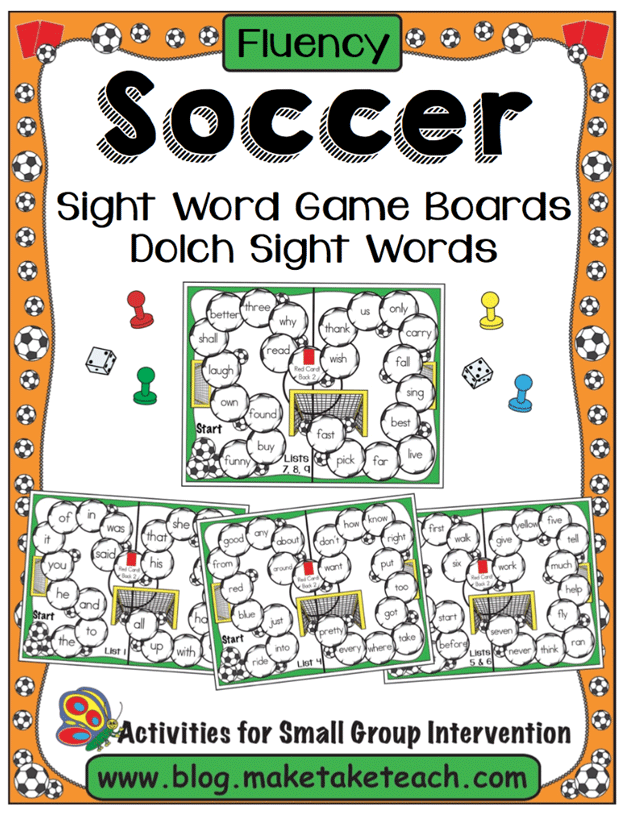 "
"
Although more research is needed to confirm the long-term benefits of using video games to treat neurological problems, this study provides preliminary evidence that cognitive training through mind games such as CogniFit games can improve symptoms in children with ADHD and possibly other cognitive violations.
Horowitz-Kraus (2013) found that CogniFit cognitive training affected both executive function and reading ability in ADHD children with and without reading problems. Indeed, CogniFit has a wide range of scientific studies of the highest scientific quality (Shah et al., 2017) in healthy people and people with a disorder, and CogniFit studies are almost the only ones where training has a significant effect (Nguyen et al. al. ., 2021).
Johns Hopkins University psychiatrist and researcher Joshua W. Buckholtz, Ph.D., stated: "The finding that video games can be an effective treatment for ADHD is very interesting. It opens up a new avenue for developing brain training" .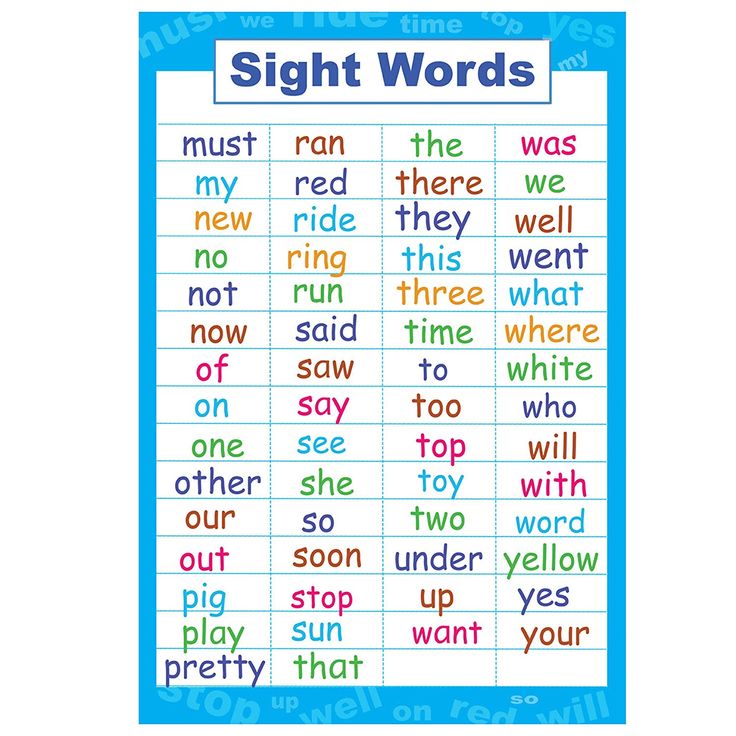
Scientific references
Anguera, J., Boccanfuso, A. Gazzaley, J., Rintoul, J., et al (2013). Video game training enhances cognitive control in older adults. Nature 501, 97–101. doi:10.1038/nature12486
Bavelier, D., Green, C. S., Pouget, A., & Schrater, P. (2012). Brain plasticity through the life span: Learning to learn and action video games. Annual Review of Neuroscience, 35(1), 391-416.
Draganski, B., Gaser, C., Buschkuehl, M., Schuetze, H., Nyberg, L,. . . Herholz, K. (2004) Changes in gray matter induced by learning–a Voxel-based morphometry study. European Journal of Neuroscience 19(10), 2593-2602
Dye, M. W., & Bavelier, D. (2009). Increasing speed of processing with action video games. Current Directions in Psychological Science, 18(6), 321-326.
Dye, M. W., Green, C. S., & Bavelier, D. (2010). Enumeration versus multiple object tracking: The case of action video game players. Cognition, 118(1), 1-10.
Green, C. S., & Bavelier, D.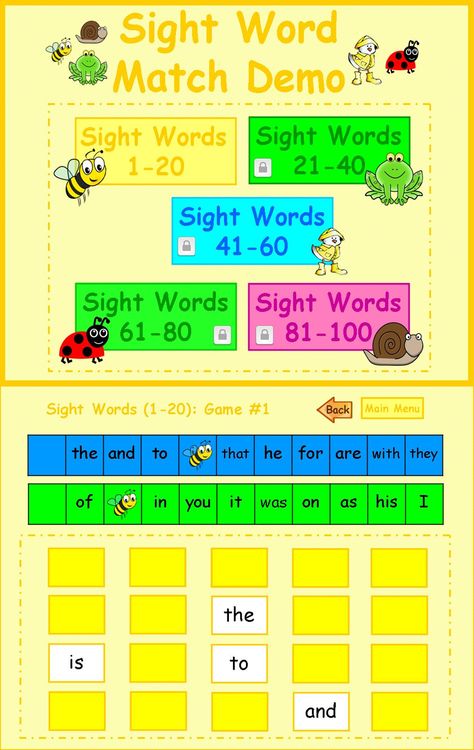 (2003). Action-video-game experience alters the spatial resolution of vision. Psychological Science, 14(6), 88-94.
(2003). Action-video-game experience alters the spatial resolution of vision. Psychological Science, 14(6), 88-94.
Horowitz-Kraus, T. (2013). Differential Effect of Cognitive Training on Executive Functions and Reading Abilities in Children With ADHD and in Children With ADHD Comorbid With Reading Difficulties. Journal of Attention Disorders, 19(6), 515–526. https://doi.org/10.1177/1087054713502079
Jaeggi, S. M., Buschkuehl, M., Jonides, J., & Perrig, W. J. (2008). The effects of cognitive training on working memory are task specific and transferable. Journal of Experimental Psychology: Learning, Memory, and Cognition, 34(4), 765-779.
Kang, Y., Park, D. C., Son, J. H., & Kim, E. H. (2012). The effect of cognitive training on the attentional blink: A meta-analysis. PLoS ONE, 7(5), e37633-e37633
Nguyen, L., Murphy, K., & Andrews, G. (2021). A Game a Day Keeps Cognitive Decline Away? A Systematic Review and Meta-Analysis of Commercially-Available Brain Training Programs in Healthy and Cognitively Impaired Older Adults.